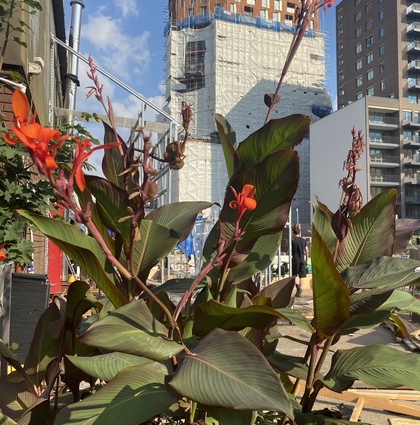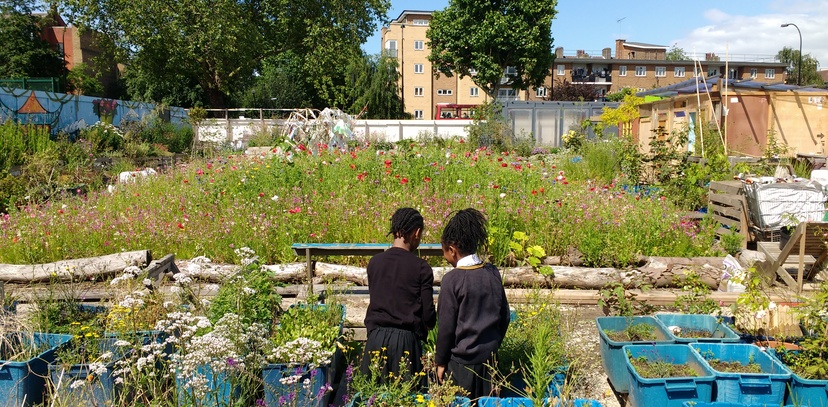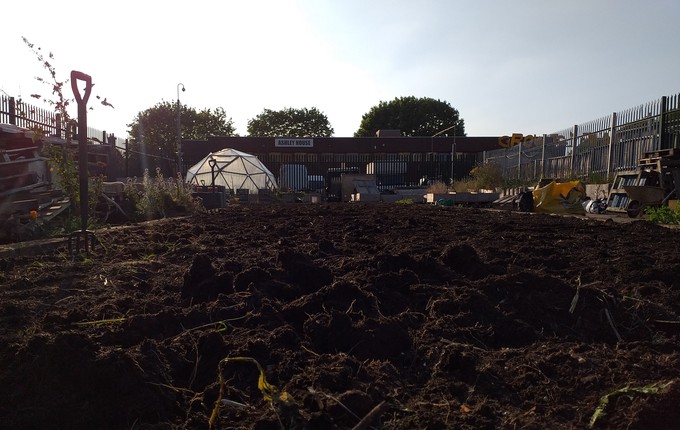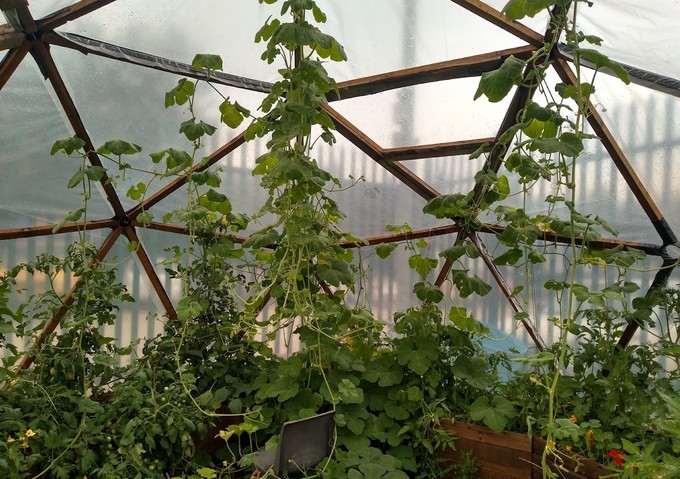

Nicola Bacon writes about spending time in Tottenham and on the Old Kent Road in meanwhile spaces.
In summer 2022 we spoke to people using the community gardens and social spaces at Grow Tottenham in the last four weeks before it closed. Several years ago, in 2019, we spent time at Grow Elephant, on New Kent Road, meeting people involved in this space, which was also at that time in its last days.
These projects demonstrate what can grow out of flexibility, and how sociability and agency can flourish alongside community-led gardens.
Grow Tottenham and Grow Elephant linked gardening, socialising and activism – enabling people to set up their own projects, build their own structures and socialise in ways that suited them. We heard how the spaces and the activities and that had taken place had strengthened social networks, increased feelings of agency and boosted wellbeing. As meanwhile sites they had limited longevity but when we spoke to people using the sites we heard narratives of loss. Both were viewed as unique and necessary spaces.

Grow Elephant and Grow Tottenham were set up by and run by Grow London CIC, a social enterprise that turns meanwhile-use spaces into places of gardening, learning, and community life. The sites were located in parts of London experiencing intensive change. Tottenham Hale is a major site for new housing, Grow Tottenham was adjacent to both older housing estates and new social housing blocks. Grow Elephant was on land that was formerly part of the Heygate Estate, this has now become part of the Elephant Park development.
Many people using both sites described feeling negative about change. Grow Elephant was located on a busy road and in an area with little usable green space, it offered locals and passers-by a place of respite .Grow Tottenham was described as an oasis of natural and social connection in an increasingly inaccessible city.
The approach, to combine spaces for gardening growing and cultivation alongside social spaces and a club (in Tottenham) and bar (in Elephant & Castle) bought different uses together. Both sites evolved organically in the three to four years they existed. There was a focus on sociability and creativity. Particularly in Tottenham, this gave groups working with marginalised families and individuals a place to set up projects and activities. Grow Tottenham’s education programmes provided a safe space for young people to learn, including young people who struggled to access, or who were excluded from, formal education. In both sites strong links were made with local communities and local community groups.
The two spaces were well-used by residents of the surrounding neighbourhoods and visitors from further afield. The wide range of events and things to do brought a cross-section of people together from the local community. Their physical and organisational flexibility supported a self-directed and community-led ethos. We heard how Grow Tottenham’s free and low-cost spaces enabled creative projects and careers to get off the ground. Grow Elephant offered a flexible way for users to cultivate their own produce and accommodated many more growers than traditional allotments – including children from local primary schools..
There is much to learn from the stories of these two places experiences, in particular from the organic and open structures that allowed people using the spaces to shape what happened. We often speak of the need to make cities resilient and to allow spaces to evolve and grow – this is a cenral part of our approach to social sustainability.
In new developments and regeneration this can seem to be very difficult to achieve, working with masterplans and stratgies for homes and infrastructure designed to last decades. Grow Tottenham and Grow Elephant demonstrate how places going through change can embrace flexibility and consequently build the resilience of local communities. We need to apply this sort of approach more to permanent spaces and structures, learning from this particular meanwhile experience.

